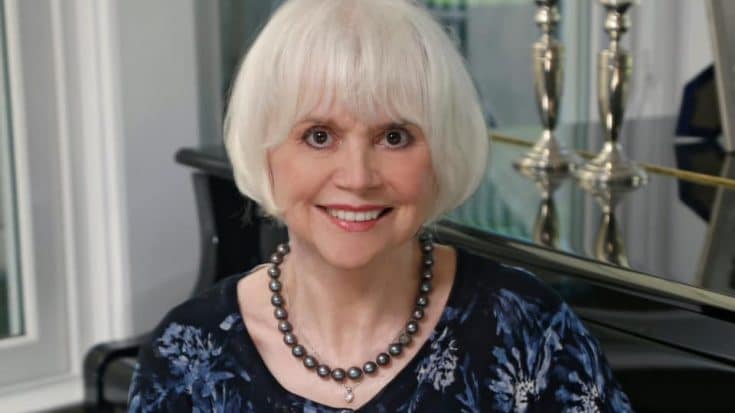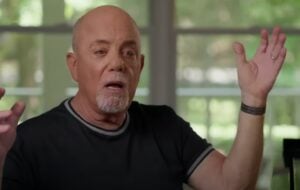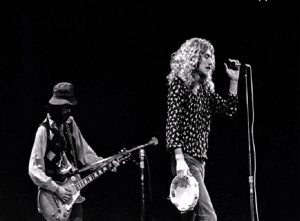How Linda Ronstadt Found Her Purpose After Losing Her Voice

via Linda Ronstadt / Facebook
Linda Ronstadt, no longer gracing the stage with her voice due to a neurological disorder diagnosed in 2019, remains deeply involved in the realms of music and culture. Even with her senses leaving her, the rockstar remained unstoppable.
The spunky singer behind “You’re No Good” and “Blue Bayou”, always proud of his Mexican heritage, had recently forged a substantial partnership with Los Cenzontles, a Mexican cultural arts academy nestled in San Pablo, California. She has also embarked on a live retrospective conversation tour, produced a documentary film, and earned a prestigious Kennedy Center Honor.
Happy 76 birthday to the amazing Linda Ronstadt! pic.twitter.com/94hb7hbiJK
— BigDaddy (@strujillo075) July 17, 2022
But her most notable recent undertaking was being an author, a new facet to her illustrious career.
The project, Feels Like Home: Songs from the Sonoran Borderlands — Linda Ronstadt’s Musical Odyssey, started as a way to share beloved family recipes from her childhood when she was still living in the borderlands between Tucson and the Rio Sonora region of northern Mexico.
“I don’t cook, so I suppose I didn’t have anything particularly earth-shattering to contribute,” the influential singer shared.
Not your typical recipe book
Ronstadt added that she wanted to write about her great-grandmother but she “didn’t know anything about her from [her] grandmother”.
“So it just became complicated,” she explained. But, of course, that did not stop the singer from accomplishing what she wanted.
To bring her vision to life, Ronstadt collaborated with former New York Times journalist Lawrence Downes and photographer Bill Steen.
View this post on Instagram
Jerry Brown, the former governor of California and Ronstadt’s partner for many years, described the book as “personal and revealing” in a statement. He pointed to the rich collection of photographs, family letters, and recipes that make up the book.
“This is quintessentially an American story — touching, and well worth reading,” Brown revealed.
Feels Like Home is a multifaceted work that blends memoir, a tribute to the desert landscape, a political commentary, and, intriguingly, an instructional guide for creating “albondigas de la Familia Ronstadt.” The book even includes its own musical accompaniment, Feels Like Home: Songs from the Sonoran Borderlands — Linda Ronstadt’s Musical Odyssey, released by the New Orleans-based Putumayo record label.
“I can sing in my brain”
Sadly for her fans, and every music fan around the world, Linda Ronstadt has stopped singing, in the conventional sense, that is. It’s now impossible for her fans to enjoy her vocal talents as they once did.
“I can sing in my brain,” the influential rock singer shared during an interview with TODAY‘s Maria Shriver.
In 2013, after grappling with vocal difficulties for an extended period, Ronstadt received a diagnosis of Parkinson’s disease. However, she later discovered that she was actually dealing with a Parkinson’s-like ailment known as progressive supranuclear palsy.
Happy Birthday to Linda Ronstadt, who turned 76 today. In my humble opinion, one of greatest Female Vocalists of All-Time! pic.twitter.com/iVwj5Rx2JG
— Steven Nadelbach (@NadelbachSteven) July 15, 2022
This rare condition is caused by the degeneration of brain cells responsible for regulating cognitive functions, movement, and coordination. It exhibits many of the same symptoms as Parkinson’s disease and dementia, and these symptoms typically worsen over time.
“It’s not quite the same,” she lamented about singing within her mind. What adds an additional layer of complexity is that she doesn’t always get to choose the tunes playing in her mental jukebox.
“Sometimes, I select the song, and sometimes it’s my brain that selects the song,” Ronstadt disclosed to Shriver.
Not your typical rockstar
She might not be able to sing anymore, or worse, she would lose all control of the songs inside her head, the generations she influenced will always remember her beautiful spunky mezzo-soprano.
The rock goddess will continue to work and spread her legacy as long as she has the ability to do so. Writing a book isn’t even something new in her long, accomplished career.
Born on July 15, 1946, in Tucson, Arizona, Linda is the third child among four siblings, born to parents Gilbert Ronstadt, a prosperous machinery merchant, and Ruth Mary (née Copeman), a homemaker. The family resided on a 10-acre ranch, sharing the space with her siblings Peter (who later served as Tucson’s Chief of Police for a decade), Michael, and Gretchen.
Linda Ronstadt’s journey in the music industry started in the mid-1960s, coinciding with California’s folk rock and country rock movements. She made her debut as the lead singer of the Stone Poneys, alongside Bobby Kimmel and Kenny Edwards.
Linda Ronstadt pic.twitter.com/YjlUODBbdl
— RED JUKEBOX (@JukeAmerican) September 27, 2023
In 1969, Ronstadt released her first solo album, Hand Sown… Home Grown – a seminal work often recognized as the first alternative country record by a female artist.
Her career soared to unparalleled heights with chart-topping albums like Heart Like a Wheel, Simple Dreams, and Living in the USA, establishing her as the first female rock star. She emerged as one of the highest-grossing concert artists of the 1970s, earning monikers like the ‘First Lady of Rock’ and the ‘Queen of Rock’.
In the 1980s, Ronstadt underwent a transformative phase, expanding her artistic horizons. She graced Broadway stages and earned a Tony nomination for her role in The Pirates of Penzance.
Collaborating with composer Philip Glass and exploring pop music, she continued her reign as one of the decade’s best-selling artists, delivering successful albums such as Mad Love, What’s New, Canciones de Mi Padre, and Cry Like a Rainstorm, Howl Like the Wind.
In 1986, she joined forces with Dolly Parton and Emmylou Harris to form the country pop supergroup known as Trio, cementing her status as an iconic figure in music history.












